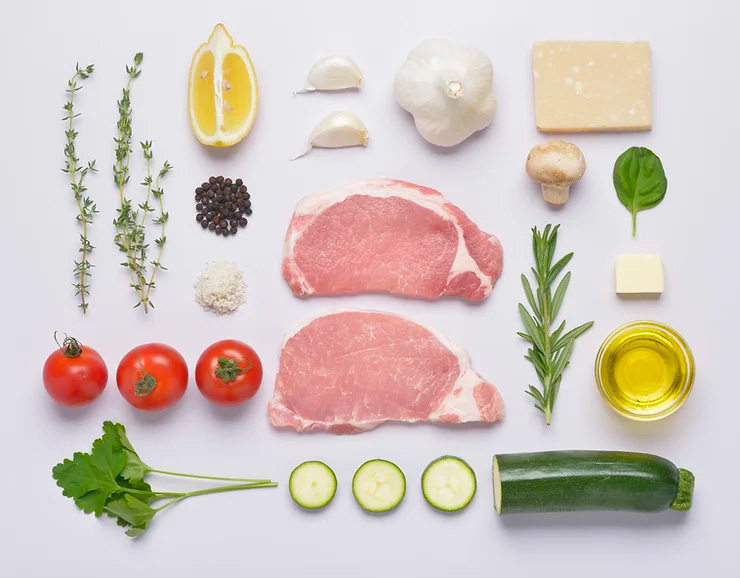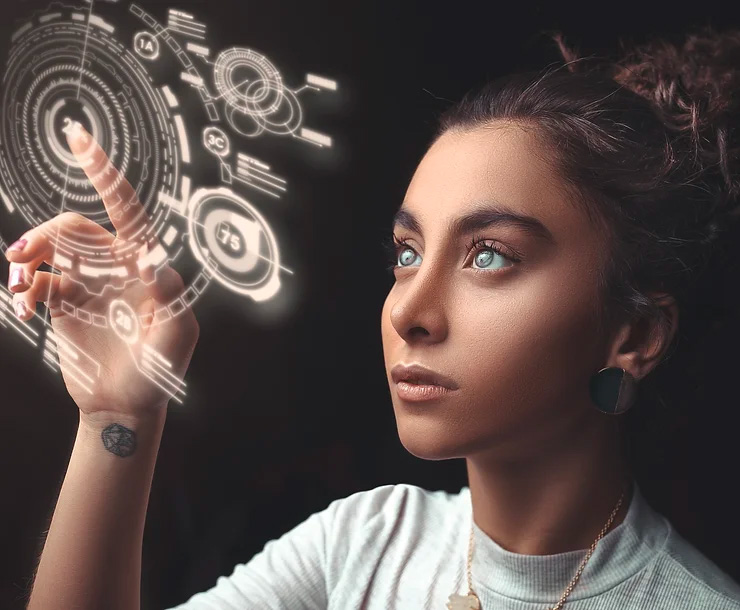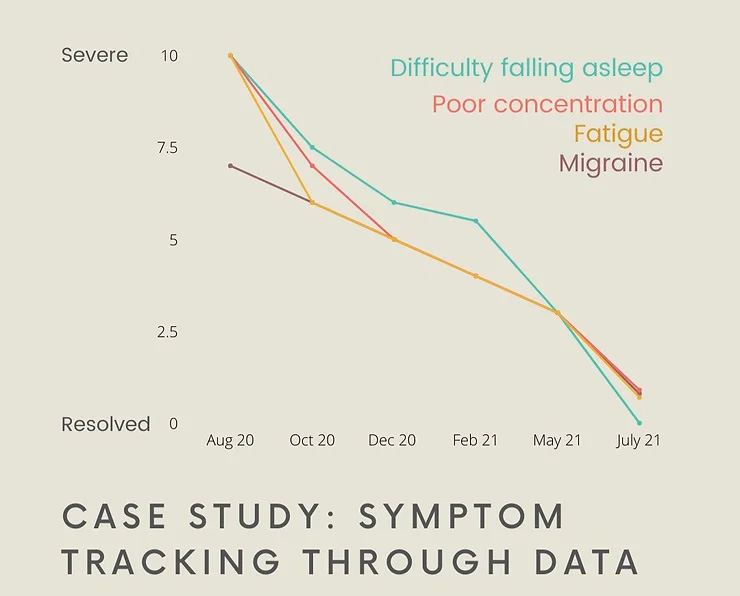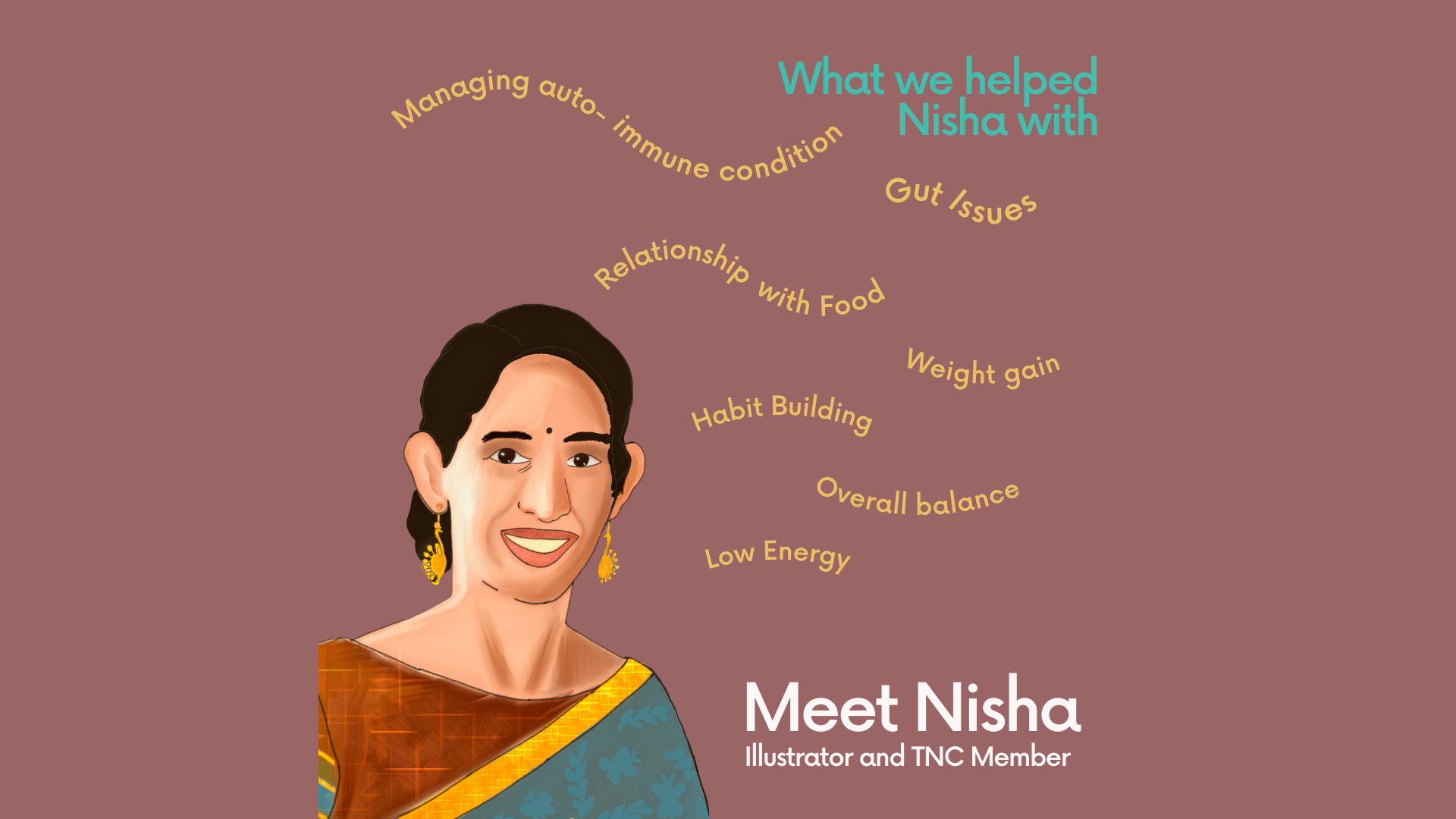Hello, Welcome to The Era of Personalised Wellness and Nutrition.

Trends to watch in Health and Wellness
Asia Pacific Focus
Pooja Vig, CEO & Co-Founder
The Nutrition Clinic
Singapore
Today, we are more fixated on the idea of personalized wellness as we are now. At TNC, we have a front-line seat to wellness trends and consumer habits, and we witness an explosion of interest in wearables that help crack the code on how we sleep, are we burning fat or carbs, how stressed we really are and how we should exercise.
There is ultimately an interest in the concept that — which is about cutting through general information and guidelines, and drilling down to only one important questions: What is going on with my body” or “what works for me”.
That is personalised wellness and nutrition.
We believe that for personalised wellness to work, we need to stop focusing on the tree, and start looking at the forest. Looking at just one aspect like sleep, movement or even DNA based wellness offerings is interesting. Let’s be honest — we all love data when it comes to our own body. But making decisions based on that one part is usually limited.
Without a doubt, personalisation through data informed by a person’s individual bio-markers has become an increasingly popular way of how consumers interact with nutrition.
Here are 3 personalised nutrition trends that we have compiled based on information that we have collected, and observations from hundreds of clients at The Nutrition Clinic (TNC).
1. Getting beyond diet labels
People no longer want to try a dozen different fad diets to know what truly works for them. The burden of overwhelming self-research in a clutter of (mis)information and “advice” coming from all angles only adds to information and decision fatigue.
While diet labels such as Keto and Paleo continue to be on trend and often have a cult following. Many advocates of the diet fail to recognise that due to a person’s biological makeup, people’s bodies react differently to the same foodstuff — one man’s meat is another man’s poison.

“We see clients who read about the keto diet for example and dive right in only to find that
Following a regimental way of eating gets tiresome for the individual very quickly, and too much of a good thing is a bad thing.
Going on a keto, paleo and even vegan diet eliminates whole food groups – which can create shortfalls and severe nutritional deficiencies in the long run. And if you jump into a keto diet when your body has consistently been fed a high carbohydrate diet, the sudden low carbohydrate intake can reduce the brain’s serotonin production, leading to poor sleep, irritability and mood swings.

A culture of diet can perpetuate eating disorders. Studies of the prevalence of eating disorders have been mainly based on populations in the U.S and Western Europe, but recent studies show that eating disorders are also emerging in Asia.
The world of nutrition is constantly evolving — in part due to new research; in part because it is big business — and there are so many new trends and diets. Health shouldn’t be a game of catch-up. It doesn’t matter what you label yourself, the key is knowing the details of the food you eat and how it affects your body.
2. Technology enhances personalization but doesn’t drive it
As technology’s role in health and wellness grows more profound, modern wellness practices create opportunities for better use of data to shape experiences and transformative care. More start-ups, as well as tech and wellness companies are offering more holistic, intuitive and results-driven services.
Data is constantly growing and expanding by the second – with boundless potential for radical customisations at scale. But customisation can get complicated very quickly, leading to a counter-intuitive paradox of personalisation.

At the end of the day, data collected and analysed is only useful if it leads to better decision making.
For example at the Clinic, some of the data we use include data on their gut microbiome, how well an individual detoxes, their energy production, how well they store and burn fat, their ability to break down cholesterol, their caffeine sensitivity, food intolerances and chronic illness risk profile. This is followed by a body stress impact to analyse their HPA-Axis and how well they respond to stress.
Based on test results and family health history, and lifestyle, we then map out an in-depth food and lifestyle plan that works for each individual; taking into account cuisines they enjoy, and activities that make them feel most alive.
Using data based on the individual’s biological parameters, together with data from symptom tracking helps companies us fill consistency gaps in our wellness treatments and looks at the whole user experience.

Figure: Real symptoms tracking data from a client at The Nutrition Clinic over an 11-month period.
Client Profile: Female, Late 30s, High Pressure Work Environment
Of course depending on the practitioner, the breadth and depth of nutritional personalisation varies.
For example, many major food industries take a broader approach to personalised nutrition. In 2018, Nestle Japan piloted their own personalised nutrition programme by combining AI and DNA testing to collect consumer data on health and diet before tailoring food products to meet those food specifications. The goal, apart from tapping into an industry with a compound annual growth rate of 13.6% (Global Nutrition Report) through 2027, is to help seniors in Japan live better, and healthier for longer. A record of 100,000 people have signed up since its launch.
Different people go through different experiences. Today, it is no longer enough to have generic products off the shelves – people want solutions specific to their individual needs and profiles.
2. Predictive Data Vs Human Insight – We Could All Use a Health Coach
You have all this new information made available to you, about you. What do you do next?
Data and AI are great at informing personalised wellness plans and predictive insight, but it lacks a critical element of health optimisation, which is behavioural change.
Most primary care health practitioners are not trained in integrative modalities – they know about nutrition, your symptoms, and are able to dish out advice on stress management, but often they are unable to help individuals pave a clear road toward true healing.
Chances are, an individual has been stuck in the same way of eating and habits. There are also factors such as relationships at home with family members, lack of confidence of next steps and the time needed to adjust.
This is where a Wellness and Habits coach can make all the difference in supporting clients to take specific action steps in nutrition, burnout management, sleep and relaxation as well as level of physical activity.

We all need to be held accountable and a wellness and habits coach helps individuals create permanent, positive change.
They take into account the different facets of the individual – physical, emotional and lifestyle factors into account and integrate sensible practices for healthier habits.
Our habits shape our lives and tweaking them can change our lives for the better. These gradual shifts add up, and wellness coaches are trained to design an individualised approach to help their clients stay on track to reach their goals.
As a proponent to personalised nutrition and wellness, Nisha Hariharan, an Illustrator from Singapore shares her thoughts,
“I genuinely feel the complementary approach of handling any condition physically (through medicines, supplements, diet changes) and mentally (through support on mindset change, encouragement and accountability) worked wonders for me.”
The biggest support was helping me understand my trigger for wanting certain foods – and rewiring how I can think about it, and also finding alternatives for the same.

My habits and wellness coach gave me practical ways to meal prep as my meals were different from what I cooked for the family. People often say that it’s hard to have a social life when you’re on a diet. But Bonnie (Wellness Coach) helped me tackle my mindset around keeping up with my diet while socialising with friends and family so that I can still enjoy being social.”
Read more about her full experience here.
Human interaction is a sacred space, and in this modern reality where social isolation and mental burnout are on the rise, a blended approach of both data and human insight offers an unparalleled opportunity in true wellness, function optimisation, and healing.
Interested to know about how we can help you personalise your nutrition improve your health and wellbeing for the long run? Schedule a call with our care manager or viewer Schedule a call with our care manager or learn more here.
Labels: Nutritionist Singapore, Personalised Nutrition, Future of Nutrition and Wellness, Wellness Trends